Atlantic Monthly Contributors's Blog, page 379
July 31, 2015
Is the U.S. Ready to Become Scandinavia?

This election cycle, two candidates have dared to touch a third rail in American politics.
Not Social Security reform. Not Medicare. Not ethanol subsidies. The shibboleth that politicians are suddenly willing to discuss is the idea that America might have something to learn from other countries.
The most notable example is Bernie Sanders, who renewed his praise for Western Europe in a recent interview with Ezra Klein. “Where is the UK? Where is France? Germany is the economic powerhouse in Europe,” Sanders said. “They provide health care to all of their people, they provide free college education to their kids.”
On ABC’s This Week in May, George Stephanopoulos asked Sanders about this sort of rhetoric. “I can hear the Republican attack ad right now: ‘He wants American to look more like Scandinavia,’” the host said. Sanders didn’t flinch:
That's right. That's right. And what's wrong with that? What's wrong when you have more income and wealth equality? What's wrong when they have a stronger middle class in many ways than we do, higher minimum wage than we do, and they are stronger on the environment than we do? Look, the fact of the matter is, we do a lot in our country, which is good, but we can learn from other countries.
Democratic politicians, and especially the furthest-left ones like Sanders, have always been more open to the Scandinavian example than others—but it’s been a long time since anyone so liberal has achieved Sanders’s prominence nationally. It’s especially unusual for any Republican to follow suit, but Jeb Bush did just that when he returned from a jaunt to Europe, marveling at technological innovation in government services: “You can fill out your tax return in Estonia online in five minutes.”
These statements are particularly unusual in the recent scope of American politics. In an age when the totemic invocation of American exceptionalism (a phrase, it’s worth recalling, invented by Joseph Stalin, and sometimes attributed to his fellow non-American Alexis de Tocqueville) has become a political necessity, it’s no surprise that politicians generally avoid citing foreign models.
Supreme Court justices, who at least like to pretend they’re not part of the political system, have given in to temptation. Former Justice Sandra Day O’Connor predicted, “Over time we will rely increasingly, or take notice at least increasingly, of international and foreign courts in examining domestic issues.” Justices Stephen Breyer and Anthony Kennedy and retired Justice John Paul Stevens have all cited foreign laws in opinions. They’ve been met with anger and criticism from both Republican lawmakers and conservative colleagues on the Court.
During the debate over healthcare reform, President Obama and Democrats who supported the law strenuously labored to make their overhaul market-based, and to avoid proposing a “European-style” universal healthcare system. Republicans, however, labeled Obama a socialist, accused him of trying to turn the U.S. into a European welfare state. They were quick to draw comparisons with Europe—unflattering, and often exaggerated, ones, of course. (Europeans themselves were perplexed by the whole proceeding.)
There are exceptions to this rule. Israel is generally a safe example, of both tech innovation and of security procedures. Praising Communist China’s results in efficiency and education—though not the methods—is doable. Some conservatives have gone so far as to praise Russian President Vladimir Putin, contrasting him with Obama as someone who gets stuff done. As Rudy Giuliani discovered when he made such a comment, the fact that Putin’s leadership rests on political repression and military aggression means it’s an unwise model to use.
Related Story
The End of American Exceptionalism
This intellectual xenophobia is, in the grand scheme of American history, a relatively new phenomenon, Daniel Rodgers notes. Rodgers, who is professor emeritus of history at Princeton and the author of Atlantic Crossings, a history of America’s international connections before World War II, points out that the U.S. was shaped early on by foreign borrowings. Not only was the nation founded philosophically on the thought of the Englishman John Locke, but the industrial revolution stateside was set off in part by Samuel Slater’s importation of mill design from the U.K. (The designs were protected intellectual property; Slater memorized as best he could, sparking an explosion of innovation.)
“It’s impossible to think about American capitalism without thinking about borrowed and appropriated technologies,” Rodgers says.
The intellectual exchange reached a high point in the late 19th and early 20th centuries. Many American elites saw themselves on a journey toward industrialization, alongside Western Europe.
“The genius of America for those progressives was to be wise and thoughtful and smart in extracting the best from this whole world of experience, adapting it to American conditions and American political realities, and making it work,” Rodgers says. In particular, Theodore Roosevelt was “unabashed” about “gleaning the best that the world had to offer for incorporation into the American social, political, and cultural systems.”
The major turning point came in 1945.
“The Americans came out of the Second World War with a sense that there was no country like them,” Rodgers says. “They imagined they had won the Second World War all alone, as if the Soviet Union had nothing to do with it. When it was done, Western Europe was obliterated. They stood all alone in their own minds as the defenders of freedom.”
That’s where things stand today. But in a post-Cold War world, the increasingly strident repetition of “American exceptionalism” starts to seem more like a mantra for warding off an increasingly connected world, and one in which the U.S. doesn’t have a monopoly on good ideas. (The popularity of the phrase in the age of Obama is surely in part a result of discomfort caused, and sometimes outright bigotry inspired, by Obama's own international roots—the son of a Kenyan, raised partly in Indonesia.) In other words, the louder insistence on exceptionalism may actually herald a greater acceptance of foreign ideas.
Jeb Bush and Bernie Sanders may seem, at first glance, an unlikely duo to lead that charge. But who better to represent America’s capacity to absorb the best that other lands have to offer than the conservative scion of New England bluebloods who married a Mexican woman, and the socialist son of a Jewish immigrant father?









What Lindsey Graham Fails to Understand About a War Against Iran

Earlier this week, Senator Lindsey Graham, a hawkish Republican from South Carolina, used a Senate Armed Services Committee hearing to stage a theatrical display of his disdain for the Obama administration’s nuclear deal with Iran.
The most telling part of his time in the spotlight came when he pressed Defense Secretary Ashton Carter to declare who would win if the United States and Iran fought a war:
Here’s a transcript of the relevant part:
Graham: Could we win a war with Iran? Who wins the war between us and Iran? Who wins? Do you have any doubt who wins?
Carter: No. The United States.
Graham: We. Win.
Little more than a decade ago, when Senator Graham urged the invasion of Iraq, he may well have asked a general, “Could we win a war against Saddam Hussein? Who wins?” The answer would’ve been the same: “The United States.” And the U.S. did rout Hussein’s army. It drove the dictator into a hole, and he was executed by the government that the United States installed. And yet, the fact that the Iraqi government of 2002 lost the Iraq War didn’t turn out to mean that the U.S. won it. It incurred trillions in costs; thousands of dead Americans; thousands more with missing limbs and post-traumatic stress disorder and years of deployments away from spouses and children; and in the end, a broken Iraq with large swaths of its territory controlled by ISIS, a force the Iraqis cannot seem to defeat. That’s what happened last time a Lindsey Graham-backed war was waged.
But one needn’t be an opponent of the Iraq war to glean its basic lessons.
Hawkish pols have a tendency to harken back to the late 1930s exclusively, but one need only look to the eve of World War I (to the Czar in Russia and the German Kaiser, say) to see that two countries can and do fight wars that both end up losing.
A war against the U.S. would likely be a disaster for Iran. And rigorous attempts to game out such a conflict suggest that it could be very bad for the U.S. as well.
My colleague Peter Beinart has written about this:
Robert Gates, who led the CIA under George H.W. Bush before becoming George W. Bush and Barack Obama’s defense secretary, has said bombing Iran could prove a “catastrophe,” and that Iran’s “capacity to wage a series of terror attacks across the Middle East aimed at us and our friends, and dramatically worsen the situation in Iraq, Afghanistan, Lebanon and elsewhere is hard to overestimate.”
Meir Dagan, who led Israel’s external spy service, the Mossad, from 2002 to 2011, has warned that an attack on Iran “would mean regional war, and in that case you would have given Iran the best possible reason to continue the nuclear program.” In the aftermath of a military strike, he added, “The regional challenge that Israel would face would be impossible.”
Says Jeffrey Goldberg, another colleague, “War against Iran over its nuclear program would not guarantee that Iran is kept forever away from a bomb. It would pretty much guarantee that Iran unleashes its terrorist armies against American targets.”
In 2004, my colleague James Fallows observed an Iran war game led by Sam Gardiner, a retired Air Force colonel who spent more than two decades conducting war games at the National War College and other military institutions––and whose prescience about aspects of the Iraq War, derived from simulations, came far closer to what happened than anything Senator Graham predicted.
The most important hidden problem, exposed in the war-game discussions, was that a full assault would require such drawn-out preparations that the Iranian government would know months in advance what was coming. Its leaders would have every incentive to strike pre-emptively in their own defense. Unlike Saddam Hussein's Iraq, a threatened Iran would have many ways to harm America and its interests.
Apart from cross-border disruptions in Iraq, it might form an outright alliance with al-Qaeda to support major new attacks within the United States. It could work with other oil producers to punish America economically. It could, as Hammes warned, apply the logic of "asymmetric," or "fourth-generation," warfare, in which a superficially weak adversary avoids a direct challenge to U.S. military power and instead strikes the most vulnerable points in American civilian society, as al-Qaeda did on 9/11. If it thought that the U.S. goal was to install a wholly new regime rather than to change the current regime's behavior, it would have no incentive for restraint.
What about a pre-emptive strike of our own, like the Osirak raid? The problem is that Iran's nuclear program is now much more advanced than Iraq's was at the time of the raid. Already the U.S. government has no way of knowing exactly how many sites Iran has, or how many it would be able to destroy, or how much time it would buy in doing so. Worse, it would have no way of predicting the long-term strategic impact of such a strike. A strike might delay by three years Iran's attainment of its goal—but at the cost of further embittering the regime and its people. Iran's intentions when it did get the bomb would be all the more hostile.
Here the United States faces what the military refers to as a "branches and sequels" decision—that is, an assessment of best and second-best outcomes. It would prefer that Iran never obtain nuclear weapons. But if Iran does, America would like Iran to see itself more or less as India does—as a regional power whose nuclear status symbolizes its strength relative to regional rivals, but whose very attainment of this position makes it more committed to defending the status quo. The United States would prefer, of course, that Iran not reach a new level of power with a vendetta against America. One of our panelists thought that a strike would help the United States, simply by buying time. The rest disagreed.
Iran would rebuild after a strike, and from that point on it would be much more reluctant to be talked or bargained out of pursuing its goals—and it would have far more reason, once armed, to use nuclear weapons to America's detriment.
Lindsey Graham’s notion that the question of war between America and Iran is coherently reducible to “we win” or “they win” is facile, dangerous, and especially galling from a man who ought to have learned better from the last war he urged. Even the most severe Iranian losses would not necessarily mean that “we win.”









Hillary Helps a Bank—and Then It Funnels Millions to the Clintons

The Swiss bank UBS is one of the biggest, most powerful financial institutions in the world. As secretary of state, Hillary Clinton intervened to help it out with the IRS. And after that, the Swiss bank paid Bill Clinton $1.5 million for speaking gigs. The Wall Street Journal reported all that and more Thursday in an article that highlights huge conflicts of interest that the Clintons have created in the recent past.
The piece begins by detailing how Clinton helped the global bank.
“A few weeks after Hillary Clinton was sworn in as secretary of state in early 2009, she was summoned to Geneva by her Swiss counterpart to discuss an urgent matter. The Internal Revenue Service was suing UBS AG to get the identities of Americans with secret accounts,” the newspaper reports. “If the case proceeded, Switzerland’s largest bank would face an impossible choice: Violate Swiss secrecy laws by handing over the names, or refuse and face criminal charges in U.S. federal court. Within months, Mrs. Clinton announced a tentative legal settlement—an unusual intervention by the top U.S. diplomat. UBS ultimately turned over information on 4,450 accounts, a fraction of the 52,000 sought by the IRS.”
Then reporters James V. Grimaldi and Rebecca Ballhaus lay out how UBS helped the Clintons. “Total donations by UBS to the Clinton Foundation grew from less than $60,000 through 2008 to a cumulative total of about $600,000 by the end of 2014, according to the foundation and the bank,” they report. “The bank also joined the Clinton Foundation to launch entrepreneurship and inner-city loan programs, through which it lent $32 million. And it paid former president Bill Clinton $1.5 million to participate in a series of question-and-answer sessions with UBS Wealth Management Chief Executive Bob McCann, making UBS his biggest single corporate source of speech income disclosed since he left the White House.”
The article adds that “there is no evidence of any link between Mrs. Clinton’s involvement in the case and the bank’s donations to the Bill, Hillary and Chelsea Clinton Foundation, or its hiring of Mr. Clinton.” Maybe it’s all a mere coincidence, and when UBS agreed to pay Bill Clinton $1.5 million the relevant decision-maker wasn’t even aware of the vast sum his wife may have saved the bank or the power that she will potentially wield after the 2016 presidential election.
But even that wouldn’t make accepting the $1.5 million excusable.
If you’re Bill Clinton and your wife has recently intervened, in her capacity as a cabinet secretary, to help a giant corporation avert a significant threat to its bottom-line, the very least you could do, if only to avoid the appearance of impropriety, is to avoid negotiating seven-figure paydays with that same corporation. This is particularly jaw-dropping because ultra-wealthy Bill Clinton has virtually unlimited opportunities to give lucrative speeches to any number of audiences not directly implicated by decisions that his wife made as secretary of state.
But maximizing the Clinton family’s wealth and power requires him to speak before the very wealthiest paymasters. And that’s exactly what the ex-president has done.
As McClatchy noted last month in a more broadly focused article that also mentions UBS, “Ten of the world’s biggest financial institutions––including UBS, Bank of America, JP Morgan Chase, Citigroup and Goldman Sachs––have hired Bill Clinton numerous times since 2004 to speak for fees totaling more than $6.4 million. Hillary Clinton also has accepted speaking fees from at least one bank. And along with an 11th bank, the French giant BNP Paribas, the financial goliaths also donated as much as $24.9 million to the Clinton Foundation––the family’s global charity set up to tackle causes from the AIDS epidemic in Africa to climate change.”
One needn’t believe that there’s ever been any quid pro quo to see that this matters.
“Any suggestions that Hillary Clinton was driven by anything but what’s in America’s best interest would be false. Period,” a campaign spokesman told The Guardian. Oh, come on. Clinton may well have thought that intervening on behalf of UBS was good for the U.S. There are reports that the Swiss helped our government in various ways in exchange for shielding the bank from a worst-case scenario.
But this campaign flak cannot possibly know––or expect us to take on faith––that Clinton was not at all influenced by knowledge that acting to benefit the bank could mean seven figures for her family and more for their foundation, whereas advocating against the bank would more than likely eliminate the chance of either. Any normal person would be influenced, if only in spite of themselves, unless they resolved from the beginning that having made a decision in government that directly affected a corporation, they’d never take money from it later even if it offered.
It is a discredit to Bill and Hillary Clinton that they behave as if they believe otherwise.
Why are they indulged in doing so?
Democrats are hurtling toward a farce. The coalition that insists on the corrupting effect of Citizens United and the unlimited campaign contributions it permits is poised to nominate a couple that has seen riches flow from big banks to their personal accounts.
Perhaps it would make sense for Democrats to hold their noses and elevate Hillary anyway if she were just beholden to the telecom or nuclear or airline industries, given their substantial agreements with other positions that she has taken. (Although her disastrous vote to give George W. Bush authority to invade Iraq, and the hawkish positions that she took on both Libya and Syria as secretary of state, are reminders that she is not perfectly aligned with her party’s base.) But big, politically active financial firms are, many Democrats believe, huge obstacles to tackling inequality and pursuing economic justice. (Just look at the likely effect of Clinton’s intervention on behalf of UBS: It probably helped some of the wealthiest Americans to hide taxable assets from the IRS.)
Finance is also the global industry most responsible for the financial crash of 2008. And it is the bane of Occupy, the biggest left-wing protest movement in recent memory.
How can mainstream Democratic Party beliefs about the corrupting effects of money in politics and the perniciousness of Big Finance possibly be squared with elevating as their leaders a couple as cozy with Big Finance as anyone in American politics?
Even Democrats who aren’t concerned about the agenda of Big Finance ought to ask themselves if America is best served by a president and first spouse who care so little about preserving the confidence that the public can reasonably have in the integrity of their actions. They are far from the only members of our elite who’ve put a payday ahead of the common good, but it’s hard to think of a more flagrant example.









Mission: Impossible – Rogue Nation and the Furious Will of Tom Cruise

On one level, Tom Cruise is an odd choice for a star expected to anchor a spy-movie franchise. Espionage, after all, is largely concerned with the dispassionate collection of information, and Cruise is among the least curious of performers. A defining characteristic of his onscreen persona is the reckless certitude that he already has everything figured out. (This is also, as Oprah Winfrey and Matt Lauer would be happy to remind you, a defining characteristic of his offscreen persona.) Cruise’s technique consistently eschews the interrogative in favor of the declarative. Sure, he’ll dutifully track down missing files and identify enemy agents when tasked with such drudgery. But these are at best secondary chores, connective tissue to hold together the motorcycle chases.
Related Story
What Mission: Impossible Understands About Tom Cruise
This, of course, is no problem at all for the Mission: Impossible movies in which Cruise stars, which have consistently viewed plot coherence as an unnecessary luxury and have elevated the MacGuffin to something approaching a philosophical ideal. Indeed, Cruise fits perfectly as the star of the franchise for reasons that are right there in the title. You don’t overcome the “impossible” by thinking it over a little more carefully. (That’s how you deal with the “possible.”) You overcome the impossible through the application of sheer, unvarnished willpower, a quality that Cruise has always possessed in abundance. Other performers might cry more persuasively, for instance, than Cruise did at Jason Robard’s bedside in Magnolia; but none will cry harder. Others might juke more gracefully in their underwear than Cruise did in Risky Business; none will juke with greater conviction.
The actor’s trademark intensity is put to good use in the latest installment of the franchise, Mission: Impossible – Rogue Nation, and never more so than in the opening ten minutes, a Bondian prologue in which the 53-year-old actor (not a stunt double, as he is justifiably eager to remind anyone who’ll listen) clings to the side of a cargo plane as it takes off and ascends to 5,000 feet. It’s a bravura sequence. The only downside is that the movie never again quite reaches such heights, so to speak.
But little matter. In another scene, Cruise penetrates a torus-shaped underwater vault, holding his breath for what seems the length of a Bible. (According to the movie’s stunt director, during one take Cruise didn’t take a breath for six minutes.) There are fisticuffs and gunfights and an assassination attempt that takes place during a production of Puccini’s Turandot. (Echoes of a similar effort at The Mikado back in 1978’s Foul Play.) And there is—of course—a motorcycle chase, which Cruise conducts with characteristic gusto. Asked at one point if he can track down a particular villain, he replies with what could easily be his life credo: “I won’t stop until I do.”
The plot, insofar as it matters, revolves around a shadowy syndicate of ex-spies bent on global domination. (It is called, conveniently enough, “the Syndicate.”) Early in the movie, Cruise’s Ethan Hunt, of the ridiculously named Impossible Mission Force (IMF), is taken captive by the Syndicate, before escaping with the help of a female agent (Rebecca Ferguson) of indeterminate allegiance. Hunt assembles his usual colleagues (played by Jeremy Renner, Simon Pegg, and Ving Rhames) to take on the group. But the mission is complicated by a CIA director (Alec Baldwin) who has succeeded in persuading Congress to shut down the IMF on the grounds that it is a vestige of a bygone era. (Echoes here of nearly every Bond film since Never Say Never Again. All that’s missing is the word “dinosaur.”) The 007 vibe is further heightened by a final act featuring the British Prime Minister (Tom Hollander), the head of MI6 (Simon McBurney), and a rendezvous at the Tower of London.
You overcome the impossible through the application of sheer, unvarnished willpower, a quality that Cruise has always possessed in abundance.For the most part, the supporting cast does what it’s paid to do: support. Ferguson holds her own in the physical charisma department, and Sean Harris makes the most of his role as the head of the Syndicate, all soft murmurs and stylish eyewear. Alas, Baldwin gives the strong impression that he has, Nicholson-like, become too large a character in his own right to convincingly play anyone else, at least in non-comic roles. Writer-director Christopher McQuarrie (teaming with Cruise again following 2012’s Jack Reacher) keeps things moving along briskly and with appropriate levity, though the movie overstays its welcome slightly at a bit over two hours.
But it’s Cruise who serves—almost literally—as the engine driving the movie. His performance is difficult to rate in the customary sense, because he has entered a phase in his career when “acting” seems almost tangential to his job description. There was a time when Cruise was eager to test his mettle with such fare as Born on the Fourth of July and Eyes Wide Shut and Magnolia. But the challenges he’s set for himself lately seem principally physical in nature, as if by hanging off planes and diving underwater he can stop his own clock from ticking into middle age. It’s an exercise simultaneously triumphant and dispiriting, and there is an odd fascination in watching how much longer he can pull it off. Another Jack Reacher movie is planned, along with at least one more installment of Mission: Impossible, and Cruise has expressed interest in making sequels to Edge of Tomorrow and even Top Gun. Love him or hate him, Tom Cruise still has no intention of stopping.









Defeating ISIS: The Board Game

Everyone with a stake in Middle Eastern geopolitics publicly declares that ISIS must be defeated. Yet opinions range widely on how this should be achieved.
Saudi Arabia, for example, believes ISIS cannot be defeated unless Syrian President Bashar al-Assad is removed from power. Turkey has just convinced NATO nations that the war against ISIS can only be won if Turkey’s traditional Kurdish opponents are neutralized first. Israel sees only one way to defeat ISIS: destroy Iran’s nuclear program and clip its wings regionally.
Related Story
The Confused Person's Guide to Middle East Conflict
So what explains these apparently contradictory aims? The cynical view would be that all these parties are less interested in defeating ISIS than in achieving their own regional goals, and that they’re only pretending to be concerned about wiping out the group. Clearly, however, there is no place for cynicism in Middle Eastern politics. Everyone involved in the region is known to be sincere, albeit in radically different ways.
A detailed analysis of the situation by the Institute of Internet Diagrams has led to a surprising discovery: It appears that all the players confronting ISIS are competing to see who can devise the largest number of steps, and most convoluted strategy, to overcome the Islamic State. We at the Institute are not sure why they are doing this, but our simulation suggests that they are secretly playing some sort of game. Few other explanations have been judged credible.
Leveraging all available data, we have mapped the various steps onto the diagram below, which seems to resemble a board game, thus confirming our theory.
 Institute of Internet Diagrams / @karlremarks 2015
Institute of Internet Diagrams / @karlremarks 2015 Here are some of the scenarios that are unfolding:
Saudi Arabia proposes first dislodging President Assad in Syria, one of ISIS’s principal enemies, which will in turn strengthen the Islamic State. That may seem like a step backward, but fear not: There’s more. The Saudis will then attack Yemen to defeat the Houthis, who are allied with Iran. This will distract Iran in its fight against ISIS. The Kingdom will also draw other Arab countries away from U.S.-led airstrikes against the Islamic State in Syria and Iraq so that these states can participate in Saudi-led strikes in Yemen. Where, you ask, does defeating ISIS fit into all this? You may have missed it: Please return to the start of this paragraph.
Turkey has advanced the idea that defeating ISIS will require attacking the Kurdish factions who are doing the most to fight the Islamic State in Syria and Iraq, thereby easing the pressure on ISIS. The Turks will then offset this by also demanding the removal of Assad, and by asking their Western allies to deflect resources away from fighting ISIS and toward creating a “safe zone” in Syria. Turkey will subsequently move to weaken Western and NATO support for Kurdish fighters, turning the Kurds into both an ally and enemy of the West. This will so utterly confuse ISIS that the group will commit major strategic mistakes.
The Kurds believe the only way to defeat ISIS is to fight it. It’s a disappointingly simple strategy.Iran’s plan for defeating ISIS relies heavily on arming Shia groups, thus giving the impression that the war against ISIS is a Sunni-Shia conflict. While this might appear to bolster ISIS’s propagandistic claims that it is defending Sunnis against Shia aggression, Iran will dispel this illusion by encouraging non-Shia groups battling ISIS to also fight under Shia banners.
Israel’s blueprint is quite straightforward by comparison: ISIS can only be defeated after Iran, which is fighting ISIS, is contained and defeated. Prime Minister Benjamin Netanyahu cleverly unified these aims by calling Iran “the Islamic State of Iran.” No other leader has ever tried to conduct geopolitics through wordplay before, but the strategy seems to be gaining momentum. The popularity of the phrase “the ISIS of …” to describe things one hates attests to the resonance of this approach. Israel plans to escalate its anti-ISIS campaign by referring to anyone who opposes Israel as “ISIS,” including Hamas (the ISIS of Gaza), Hezbollah (the ISIS of Lebanon), and Sweden (the ISIS of Scandinavia).
America’s strategy is substantially different from everyone else’s. President Barack Obama wants to defeat ISIS by not appearing to be the force defeating ISIS. This is a difficult task, particularly when your air force is the one carrying out most operations against ISIS targets. But Obama is an astute strategist. His plan centers on supporting Kurdish factions as he also supports Turkey which is now attacking the Kurds while also supporting Saudi Arabia in its war in Yemen which upsets Iran whom U.S. forces are collaborating with in fighting ISIS in Iraq as he simultaneously yields to pressure from allies to weaken Assad in Syria which complicates things further with Iran which he pacifies by signing the nuclear deal upsetting America’s traditional friend Israel whose anger is absorbed with shipments of advanced weapons escalating the arms race in the region.
The Kurds, meanwhile, believe the only way to defeat ISIS is to fight it. It’s a disappointingly simple strategy. The Institute’s sources suggest that the Kurds have yet to earn any points in the game, and may no longer even be playing.









July 30, 2015
The Enduring Mystery of Flight MH370

In the 16 months since its disappearance on March 8, 2014, investigators still have not determined what happened to Malaysia Airlines Flight 370. Finally, a promising lead has emerged. On Wednesday, a fragment of a plane’s wing measuring 9 feet by 3 feet washed ashore in Reunion Island, a French territory in the western Indian Ocean. Investigators say the item—called a “flaperon”—is from a Boeing 777 aircraft, the same type of aircraft as the missing plane. If it’s confirmed to be from MH370, the flaperon would be the first piece of physical evidence discovered since the plane’s disappearance last spring with 239 people on board.
Warren Truss, the deputy prime Minister of Australia, said it was too early to judge whether the fragment belonged to plane. “But clearly we are treating this as a major lead,” he said. The flaperon—which contained a number written on its surface that may refer to the item’s maintenance—will be sent to an aviation office in Toulouse, France, for further investigation. Officials say it will be at least a week before the precise identity of the fragment is known.
“Clearly we are treating this as a major lead.”Even if, as expected, the fragment is confirmed to have once belonged to MH370, investigators are far from determining what happened to the aircraft. The discovery in Reunion Island, more than 2,000 miles west from the main search area, doesn’t mean the rest of the debris will be nearby: Ocean currents may have pushed other fragments of the plane toward the main search area near Australia, or even somewhere else entirely. And even the recovery of much of the aircraft may not reveal what, precisely, brought the plane down last March.
For the family members of the missing 227 passengers and 12 crew members, the discovery only prolongs an emotional rollercoaster. The absence of physical evidence made it difficult for many to accept their loved ones had died. In January, when the Malaysian government declared the MH370 mystery an accident and pronounced that those on board were presumed dead, many family members reacted with incredulity and disdain, releasing a statement saying they “do not accept this proclamation and will not give up hope until we have definitive proof of a crash and a determination of location — even if it is just one piece of the wreckage.”
Thursday’s discovery, at least, provides fresh momentum to a search operation that some observers believed had run its course. In June, after the Australian government said it would not expand the geographic scope of its investigation, a rival airline executive said it was only a “matter of time” before the search was called off completely. The appearance of the flaperon renders that possibility moot. But for the families of the missing, this is a mixed blessing. On Thursday, Jacquita Gomes, whose husband had been on MH 370, told the Wall Street Journal the existence of physical evidence of the plane would provide her with “some sort of closure.” But, she added, “the other part is no: Let it not be true, because then we can still have hope that there’s a chance that they can all come home.”









The Dark Heart of Review’s Bright-Eyed Star

Forrest MacNeil, the protagonist of Comedy Central’s Review, is that most beloved of American fictional archetypes: He’s a totally average man. Played by Andy Daly, he’s someone curiously lacking in life experience—a chipper, suburban fool who thinks his guilelessness makes him the perfect host for a documentary series where he “reviews” life experiences. Back for a second season of brilliant but cringe-inducing humor, Review understands that Forrest’s creative drive is also his undoing: His experiments almost always blow up in his face. Like so many average men, Forrest thinks his opinions are important, a seemingly harmless belief the show carries to extreme conclusions.
Related Story
The Thing That Made ‘The Office’ Great Is the Same Thing That Killed It
“Cringe humor” is a tough subgenre to nail—how do you keep audiences watching and laughing when you’re also trying to make them uncomfortable? Overseas comedy, particularly from the U.K., has always been the standard-bearer for sitcoms about unpleasant people or depressing topics that manage to find laughs amid bleakness, but the influence of Ricky Gervais’ The Office (and many others) is big enough that the subgenre has found a foothold in the U.S. Review is an adaptation of a similarly dark Australian show, but in creating the original character of Forrest, Daly has found a uniquely American way to present the same kind of humor: by bathing it in sunshine and optimism.
Forrest truly believes in what he’s doing on the show-within-a-show that is Review With Forrest MacNeil, where he takes audience submissions on particular life experiences he should sample. Over the course of the first season, he developed a cocaine addiction, attended an orgy, attempted to go into space, and worst of all, demanded a divorce from his wife (Jessica St. Clair) out of nowhere because the segment demanded it. As Review progressed, what basically seemed like a sketch show revealed itself to be a mockumentary about a man taking his life apart from the inside out—all with a smile on his face and in the name of good television.
“It's a good vehicle for binge-watching, that you can experience the collapse of Forrest's life over the first season,” Daly told me. If the first season is about the shocking collapse of Forrest’s life, the second is about his painful attempts to rebuild from scratch—all while carrying on his work. Daly understands that the material isn’t for everyone, but admits black comedy is what drew him to the Australian show in the first place. He cited The Office, a cult hit for the BBC that turned into an international phenomenon, as a “revelation” in terms of how to present a more grim comic perspective. On one hand, the show maintained realism by shying away from grander comic gestures, but it also didn’t hold back in other ways. “Because they’re willing to have such dark, sad, uncomfortable things happen ... you never know what to expect of a show like that,” Daly said. “I have no idea what they're going to do, whether or not they're going to completely destroy this person in front of my eyes.”
With Review, what seemed like a sketch show revealed itself to be a mockumentary about a man taking his life apart from the inside out.The British Office is a 14-episode tale of white-collar drudgery and the dim spots of happiness found within; its American remake had a slightly bouncier vibe by necessity, since it ran for 201 episodes. But even though Steve Carell’s Michael Scott was more of a lovable loser than Gervais’ David Brent, the American show didn’t lose its core focus on the bleak laughs found in work life, even if it had a cheerier outlook and a more sympathetic star.
As with Michael Scott, it’s hard not to root for Forrest, daft as he might be, and Daly says that characterization was part of a larger calculation. “We certainly never talked about likability in the early creation of the show, any of those traditional ideas, making sure we could root for the guy,” he said. “But we did talk about how we could continue to believe that Forrest would keep doing these things—that blind optimism is part of that.” It’s also crucial, he noted, that Forrest doesn’t enjoy using Review’s premise to commit monstrous acts. He approaches the bad assignments with the same faux-journalistic integrity as the good ones. “We never wanted to feel like Forrest has been going around hurting other people or hurting himself, and that this show just gives him an excuse to do it.” As a by-product of the show, he becomes somewhat of a tragic hero, a victim of his own good, if misguided, intentions.
It’s rare that a comedy’s plot details need to be kept secret, but with Review, the anticipation of what will happen next is a big part of the appeal. A seemingly benign review might quickly escalate into violence or emotional trauma; the surprise, and the suspense, is as much a part of the comedy as Forrest’s atonal reactions. “The threat of death seems to be lurking,” Daly acknowledged, particularly now that the rest of Forrest’s life has been ripped to shreds.
But the crux of the joke comes from the character himself and the never-ending joke that is his pioneering spirit. “This whole notion of somebody having life experiences and reviewing them and sharing their own insight of their own experience, in a way that could be universally helpful, is an idiotic idea,” Daly said. “But if you were going to choose someone to do it, Forrest MacNeil is maybe the last person you would choose, because of how ignorant he is.”
That’s what keeps Review consistently funny in its second year, even after it’s seemingly done every awful thing one could imagine to its protagonist. The audience is rooting for Forrest, but it also can’t help but enjoy the devastating fallout precipitated by his arrogance. “Nobody else in the world could ever have had the experiences that he has, and yet he speaks about it as if it’s a universal one,” Daly said. “He has a healthy concept of his importance in the world.” As the show, and cringe comedy in general, frequently reminds us, a healthy concept of one’s own importance is the biggest joke of all.









The 2016 U.S. Presidential Race: A Cheat Sheet

After decades as the butt of countless jokes, it’s Cleveland’s turn to laugh: Seldom have so many powerful people been so desperate to get to the Forest City. There’s one week until the Republican Party’s first primary debate of the cycle on August 6, and now there’s a mad dash to get into the top 10 and qualify for the main event.
With former Virginia Governor Jim Gilmore filing papers to run for president on July 29, there are now 17 “major” candidates vying for the GOP nomination, though that’s an awfully imprecise descriptor. It takes in candidates with lengthy experience and a good chance at the White House, like Scott Walker and Jeb Bush; at least one person who is polling well but is manifestly unserious, namely Donald Trump; and people with long experience but no chance at the White House, like Gilmore. Yet it also excludes other people with long experience but no chance at the White House, such as former IRS Commissioner Mark Everson.
Under the rules for the debate, only the top 10 candidates get to be on stage for the debate, though a “kid’s table” debate before the main event is open to those who don’t make the cutoff. This creates a vicious cycle: The only way to get on stage is to be polling decently, but the candidates who don’t make the stage will miss out on invaluable attention, making it harder for them to poll decently, making it hard for them to make the next debate and … well, you get the idea.
The result is a parallel mad dash by candidates and pollsters in the days before the window closes to qualify for the debate, on Tuesday. As Steven Shepard notes, Fox News’ standards about what polls will count are a bit obscure, but pollsters are jockeying to time their polls so as to be included. Candidates who are on the bubble, meanwhile, are doing what they can to get attention and with it rising poll numbers. Mike Huckabee is accusing the president of abetting a new Holocaust; Ted Cruz is accusing him of sponsoring terrorism. Rick Perry is sounding like Elizabeth Warren. Lindsey Graham is doing all sorts of horrible things to obsolete telephones.
The bottom of the peloton is tightly clustered, so there are different projections about who might round out the crowd. The candidates who seem assured of a spot include Trump, Scott Walker, Jeb Bush, Marco Rubio, Huckabee, Ben Carson, Rand Paul, and Cruz. One interesting question to watch is whether Ohio Governor John Kasich manages to squeak onto the debate stage in his own state—as it seems he might, barely. (Gilmore will not.) Meanwhile, the biggest story in presidential politics remains the bizarre juggernaut of the Trump campaign, which continues to defy physics, pundits, and a string of gaffes to gain momentum and even bigger poll leads. This has to end some time soon, right? Right?
With so many candidates in the mix—some announced, some soon to announce, and some still on the fence—it’s tough to keep track of it all. To help out with that, this cheat sheet on the state of the presidential field will be periodically updated throughout the campaign season. Here's how things look right now.
* * *
The Republicans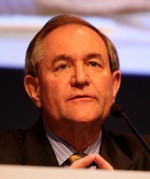 JIm Gilmore
JIm Gilmore Jim Gilmore
Who is he? Right? Gilmore was governor of Virginia from 1998 to 2002. Before that, he chaired the Republican National Committee for a year. In 2008, he ran for Senate in Virginia and lost to Mark Warner by 31 points. Thirty-one!
Is he running? Yes. He filed his papers on July 29.
Who wants him to run? Who knows? Gilmore ran for president briefly during the 2008 cycle before switching to the Senate race. There’s not exactly a groundswell for him this time, either. He says he has experience with national security and the economy that other Republican candidates don’t, and if he’s talking about Trump, it’s hard to disagree.
Can he win? Nah.
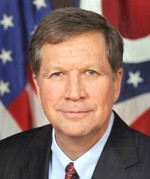 Wikimedia
Wikimedia John Kasich
Who is he? The current Ohio governor ran once before, in 2000, after a stint as Republican budget guru in the House. Between then and his election in 2010, he worked at Lehman Brothers. Molly Ball wrote a definitive profile in April.
Is he running? Yes: His announcement was July 21 at Ohio State University in Columbus.
Who wants him to run? Kasich’s pitch: He’s got better fiscal-conservative bona fides than any other candidate in the race, he’s proven he can win blue-collar voters, and he’s won twice in a crucial swing state. While his polling isn’t stellar, he still leads Graham, Fiorina, and Jindal.
Can he win the nomination? As Ball noted, Kasich seems in some ways perfectly suited to this race; in other ways, his insistent anti-charisma makes it very hard to imagine him winning, and his attitude is amusingly blasé: “If they like it, great. If they don’t like it, I’ll play more golf.” He could be hurt by his embrace of Medicaid expansion under Obamacare, a move he had to circumvent the Republican-led General Assembly to make.
Does his website have a good 404 page? Nope.
What else do we know? John Kasich bought a Roots CD and hated it so much he threw it out of his car window. (Littering is illegal, governor!) John Kasich hated the Coen brothers’ classic Fargo so much he tried to get his local Blockbuster to quit renting it. George Will laughed at him. John Kasich is the Bill Brasky of philistinism. John Kasich probably hated that skit, too.
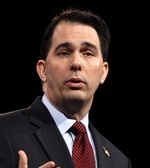 Gage Skidmore
Gage Skidmore Scott Walker
Who is he? Elected governor of Wisconsin in 2010, Walker earned conservative love and liberal hate for his anti-union policies. In 2013, he defeated a recall effort, and he won reelection the following year.
Is he running? Yes. He announced on July 13.
Who wants him to run? Walker's record as governor of Wisconsin excites many Republicans. He's got a solid résumé as a small-government conservative. His social-conservative credentials are also strong, but without the culture-warrior baggage that sometimes brings. And Walker has won three difficult elections in a blue-ish state. He’s said to be a favorite of the Koch brothers and their network.
Can he win the nomination? Very possibly. Despite his strengths, Walker has never run a national campaign and isn't exactly Mr. Personality. For now, he is solidly in the top tier of candidates.
Does his website have a good 404 page? Aye, matey.
What else do we know? Good news, bad news: Walker has a geographic advantage in his proximity to Iowa, but a potential biological disadvantage from his allergy to dogs.
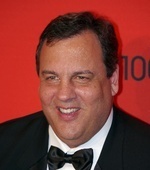 David Shankbone
David Shankbone Chris Christie
Who is he? What’s it to you, buddy? The combative New Jerseyan is in his second term as governor and previously served as a U.S. attorney.
Is he running? Christie kicked off his campaign June 30 at Livingston High School, his alma mater.
Who wants him to run? Moderate and establishment Republicans who don't like Bush or Romney; big businessmen, led by Home Depot founder Ken Langone.
Can he win the nomination? No. The tide of opinion had turned against Christie even before the "Bridgegate" indictments. Citing his horrific favorability numbers, FiveThirtyEight bluntly puns that “Christie's access lanes to the GOP nomination are closed.”
Does his website have a good 404 page? We would have gone with the GIF, but sure.
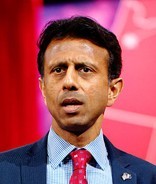 Gage Skidmore
Gage Skidmore Bobby Jindal
Who is he? A Rhodes Scholar, he’s the outgoing governor of Louisiana. He previously served in the U.S. House.
Is he running? Yes. He kicked off his campaign on June 24.
Who wants him to run? It’s hard to say. Jindal has assiduously courted conservative Christians, both with a powerful conversion story (he was raised Hindu but converted to Catholicism in high school) and policies (after other governors reversed course, he charged forward with a religious-freedom law). But he still trails other social conservatives like Ted Cruz and Mike Huckabee.
Can he win the nomination? Probably not. Jindal still lacks traction at the national level, he faces an overcrowded field of social conservatives, and his stewardship of the state of Louisiana has come in for harsh criticism even from staunch fiscal conservatives. It’s hard to see how he gains momentum from here.
What else do we know? In 1994, he wrote an article called “Physical Dimensions of Spiritual Warfare,” in which he described a friend’s apparent exorcism.
Does his website have a good 404 page? Meh. Good joke, but past its expiration date.
 Gage Skidmore
Gage Skidmore Donald Trump
Who is he? The real-estate developer and reality-TV star fired TV personality almost certainly isn’t worth as much as he wants you to think he is.
Is he running? Like, is he going to win the nomination? Of course not. But his wacky, offensive, ad-lib rise to the top of the Republican polls has been amazing.
Who wants him to run? Jon Stewart; Donald Trump. The rest of the Republican Party, however, seems horrified.
Can he win the nomination? When does this GIF stop seeming funny and accurate, and start seeming incorrect?

Not today! He’s still not gonna win.
What else do we know? He’s, like, a really smart person.
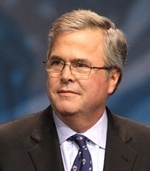 Gage Skidmore
Gage Skidmore Jeb Bush
Who is he? The brother and son of presidents, he served two terms as governor of Florida, from 1999 to 2007.
Is he running? Yes, as of June 15.
Who wants him to run? Establishment Republicans; George W. Bush; major Wall Street donors.
Can he win the nomination? Bush is a top-tier candidate, but just how strong he is remains unclear. Since jumping into the race, he has continued to poll well and raise lots of money. He seems like a lock to rack up all-important endorsements from top Republicans. But predictions that he would quickly come to dominate the field have not come to pass, and while many analysts predicted that his moderate record would cause trouble in Iowa and with grassroots activists, that problem seems to be deeper than expected. His poll numbers are probably helped by his name, which is a double-edged sword.
What else do we know? Since Bush's surprise announcement, he has tended to stay fairly quiet, delivering some big speeches and hitting fundraisers, but not making a great number of trips to Iowa or New Hampshire.
Does his website have a good 404 page? Yes—y en español también.
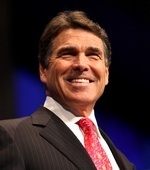 Gage Skidmore
Gage Skidmore Rick Perry
Who is he? George W. Bush’s successor as governor of Texas, he entered the 2012 race with high expectations, but sputtered out quickly. He left office in 2014 as the Lone Star State’s longest-serving governor.
Is he running? Yes. He announced on June 4.
Who wants him to run? Small-government conservatives; Texans; immigration hardliners; foreign-policy hawks. Noah Rothman makes a case here. (Perry's top backer four years ago, non-relative Bob Perry, died in 2013.)
Can he win the nomination? Perry and his backers insist 2016 Perry will be the straight shooter who oversaw the so-called Texas miracle, not the meandering, spacey Perry of 2012. We'll see. So far, his campaign has failed to catch on in polling, even as he wins acclaim as a drastically improved candidate.
Does his website have a good 404 page? That depends. Is this an “oops” joke? If so, yes.
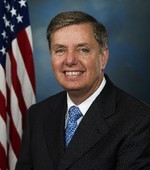 Wikimedia
Wikimedia Lindsey Graham
Who is he? A senator from South Carolina, he’s John McCain’s closest ally in the small caucus of Republicans who are moderate on many issues but very hawkish on foreign policy.
Is he running? He sure is. Graham kicked off the campaign June 1.
Who wants him to run? John McCain, naturally. Senator Kelly Ayotte, possibly. Joe Lieberman, maybe?
Can he win the nomination? Not really. The South Carolina senator seems to be running in large part to make sure there’s a credible, hawkish voice in the primary. It seems like Graham started his campaign almost as a lark but has started to enjoy the ride, plus he’s shown he’s a great performer on the stump. Molly Ball explores his chances at greater length here.
What else do we know? Graham promises to have a rotating first lady if he wins. We nominate Lana del Ray.
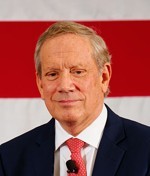 Michael Vadon
Michael Vadon George Pataki
Who is he? Pataki ousted incumbent Mario Cuomo in 1994 and served three terms as governor of New York.
Is he running? Yes. He announced May 28.
Who wants him to run? It's not clear. Establishment Northeastern Republicans once held significant sway over the party, but those days have long since passed.
Can he win the nomination? No. As my colleague Russell Berman previously noted, Pataki is one of the longest of the long-shot GOP candidates. He has touted his leadership on 9/11, when he served as governor, but so did former New York City Mayor Rudy Giuliani. He was also a successful conservative governor in a deep-blue Northeastern state, but so was former Massachusetts Governor Mitt Romney. He seems to be socially liberal enough to alienate primary voters, but not enough to capture Democrats.
Does his website have a good 404 page? No.
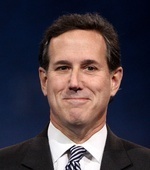 Gage Skidmore
Gage Skidmore Rick Santorum
Who is he? Santorum represented Pennsylvania in the Senate from 1995 until his defeat in 2006. He was the runner-up for the GOP nomination in 2012.
Is he running? Yes, with a formal announcement on May 27.
Who wants him to run? Social conservatives. The former Pennsylvania senator didn't have an obvious constituency in 2012, yet he still went a long way, and Foster Friess, who bankrolled much of Santorum's campaign then, is ready for another round.
Can he win the nomination? It's tough to imagine. Santorum himself said his chances would hinge on avoiding saying "crazy stuff that doesn't have anything to do with anything." For now, his poll numbers remain in the basement—but he surprised in 2012.
Does his website have a good 404 page? No.
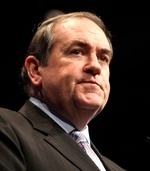 Gage Skidmore
Gage Skidmore Mike Huckabee
Who is he? An ordained preacher, former governor of Arkansas, and Fox News host, he ran a strong campaign in 2008, finishing third, but sat out 2012.
Is he running? Yes. He kicked off the campaign May 5.
Who wants him to run? Social conservatives; evangelical Christians.
Can he win the nomination? Huckabee's struggle will be to prove that he's still relevant. Since he last ran in 2008, a new breed of social conservatives has come in, and he'll have to compete with candidates like Ted Cruz. His brand of moral crusading feels a bit out of date in an era of widespread gay marriage—not least when he curiously chose to attack Beyoncé. (His statements in support of Josh Duggar have also earned him criticism and quizzical reaction.) He faces fire from strict anti-tax conservative groups for tax hikes while he was governor. And fundraising has always been his weak suit. But Huckabee's combination of affable demeanor and strong conservatism resonates with voters.
Does his website have a good 404 page? It’s pretty good.
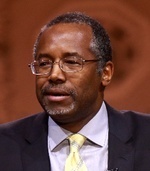 Gage Skidmore
Gage Skidmore Ben Carson
Who is he? A celebrated former head of pediatric neurosurgery at Johns Hopkins, Carson became a conservative folk hero after a broadside against Obamacare at the 2013 National Prayer Breakfast.
Is he running? Yes, after a May 4 announcement.
Who wants him to run? Grassroots conservatives, who have boosted him up near the top of polls, even as Republican insiders cringe. Carson has an incredibly appealing personal story—a voyage from poverty to pathbreaking neurosurgery—and none of the taint of politics.
Can he win the nomination? Almost certainly not. Carson's politics are conservative on some issues, but so eclectic as to be nearly incoherent overall. He's never run a political campaign, and has a tendency to do things like compare ISIS to the Founding Fathers. Despite initially building a formidable organization, he’s struggled to keep it together, with a rash of top staffers defecting.
Does his website have a good 404 page? No.
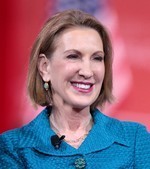 Gage Skidmore
Gage Skidmore Carly Fiorina
Who is she? Fiorina rose through the ranks to become CEO of Hewlett-Packard from 1999 to 2005, before being ousted in an acrimonious struggle. She advised John McCain’s 2008 presidential campaign and unsuccessfully challenged Senator Barbara Boxer of California in 2010.
Is she running? Yes, as of a May 4 announcement.
Who wants her to run? It isn’t clear what Fiorina’s constituency is. She’s a former CEO of Hewlett-Packard, but there are other business-friendly candidates in the race, all of whom have more electoral experience.
Can she win the nomination? Almost certainly not. Fiorina’s only previously political experience was a failed Senate campaign against Barbara Boxer in 2010. She has mostly been serving the role of harasser in the race so far, stirring up the news with slams on environmentalists for causing droughts (your guess is as good as mine), Obama for backing net neutrality, and Apple’s Tim Cook for speaking out on Indiana’s Religious Freedom Restoration Act. Mainly, though, she has strongly criticized Hillary Clinton, and some Republican strategists like the optics of having a woman to criticize Clinton so as to sidestep charges of sexism. Fiorina seems to be wowing voters in Iowa, but that hasn’t translated into national support—yet.
What else do we know? Fiorina's 2010 Senate race produced two of the most entertaining and wacky political ads ever, "Demon Sheep" and the nearly eight-minute epic commonly known as "The Boxer Blimp."
Does her website have a good 404 page? No.
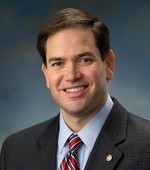 Wikimedia
Wikimedia Marco Rubio
Who is he? A second-generation Cuban-American and former speaker of the Florida House, Rubio was catapulted to national fame in the 2010 Senate election, after he unexpected upset Governor Charlie Crist to win the GOP nomination.
Is he running? Yes—he announced on April 13.
Who wants him to run? Rubio enjoys establishment support, and has sought to position himself as the candidate of an interventionist foreign policy.
Could he win the nomination? Charles Krauthammer pegs him as the Republican frontrunner. His best hope seems to be to emerge as a consensus candidate who can appeal to social conservatives and hawks, and he's even sounded some libertarian notes of late. He's well-liked by Republicans, and has surged forward since announcing, but he needs to move up from second choice to first choice for more of them. Rubio seems to scare Democrats more than any other candidate, too.
Does his website have a good 404 page? It’s decent.
 Wikimedia
Wikimedia Rand Paul
Who is he? An ophthalmologist and son of libertarian icon Ron Paul, he rode the 2010 Republican wave to the Senate, representing Kentucky.
Is he running? Yes, as of April 7.
Who wants him to run? Ron Paul fans; Tea Partiers; libertarians; civil libertarians; non-interventionist Republicans.
Can he win the nomination? At one time, Paul seemed like he might manage to break into the top tier despite being a radically unorthodox Republican. He's relatively permissive on drugs, passionate about civil liberties, and adamantly in favor of restraint on foreign policy. So far, however, his unusual candidacy isn’t taking off. Paul remains stuck in the rear-middle of the pack, he hasn’t picked up the big donors he hoped for, and his father’s backers remain wary of his overtures to the GOP establishment
What else do we know? One of Paul's greatest strengths is the base bequeathed to him by his father, three-time presidential candidate and former Representative Ron Paul. But as The Washington Post has reported, his father is also Senator Paul's biggest headache.
Does his website have a good 404 page? No.
 Wikimedia
Wikimedia Ted Cruz
Who is he? Cruz served as deputy assistant attorney general in the George W. Bush administration and was appointed Texas solicitor general in 2003. In 2012, he ran an insurgent campaign to beat a heavily favored establishment Republican for Senate.
Is he running? Yes. He launched his campaign March 23 at Liberty University in Virginia.
Who wants him to run? Hardcore conservatives; Tea Partiers who worry that Rand Paul is too dovish on foreign policy; social conservatives.
Can he win the nomination? Though his announcement gave Cruz both a monetary and visibility boost, he still carries serious weaknesses. Much of Cruz's appeal to his supporters—his outspoken stances and his willingness to thumb his nose at his own party—also imperil him in a primary or general election, and he's sometimes been is own worst enemy when it comes to strategy. But Cruz is familiar with running and winning as an underdog.
Does his website have a good 404 page? No.
 Gage Skidmore
Gage Skidmore Sarah Palin
Who is she? If you have to ask now, you must not have been around in 2008. That’s when John McCain selected the then-unknown Alaska governor as his running mate. After the ticket lost, she resigned her term early and became a television personality.
Is she running? A bizarre speech in January made a compelling case both ways.
Who wants her to run? Palin still has diehard grassroots fans, but there are fewer than ever.
Can she win the nomination? No.
When will she announce? It doesn't matter.
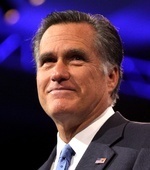 Gage Skidmore
Gage Skidmore Mitt Romney
Who is he? The Republican nominee in 2012 was also governor of Massachusetts and a successful businessman.
Is he running? Nah. He announced in late January that he would step aside.
Who wanted him to run? Former staffers; prominent Mormons; Hillary Clinton's team. Romney polled well, but it's hard to tell what his base would have been. Republican voters weren't exactly ecstatic about him in 2012, and that was before he ran a listless, unsuccessful campaign. Party leaders and past donors were skeptical at best of a third try.
Could he have won the nomination? He proved the answer was yes, but it didn't seem likely to happen again.
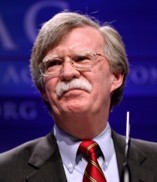 Gage Skidmore John Bolton
Gage Skidmore John Bolton Who is he? A strident critic of the UN and leading hawk, he was George W. Bush’s ambassador to the UN for 17 months.
Is he running? Nope. After announcing his announcement, in the style of the big-time candidates, he posted on Facebook that he wasn’t running.
Who wanted him to run? Even among super-hawks, he didn’t seem to be a popular pick, likely because he had no political experience.
Could he have won the nomination? They say anything is possible in politics, but this would test the rule. A likelier outcome could be a plum foreign-policy role in a hawkish GOP presidency.
Others Still in the Mix:
Bob Ehrlich, Peter King, Harold Stassen
* * *
The Democrats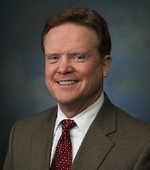 Wikimedia
Wikimedia Jim Webb
Who is he? Webb is a Vietnam War hero and secretary of the Navy. The author of several books, he served as a senator from Virginia from 2007 to 2013.
Is he running? Yes, as of July 2.
Who wants him to run? Dovish Democrats; socially conservative, economically populist Democrats; the Anybody-But-Hillary camp.
Can he win the nomination? Very doubtful. While Webb was the perfect candidate for Senate from Virginia in 2006, his statement in support of the Confederate flag shows why he probably has little hope in the national Democratic Party.
What else do we know? Read Webb’s longtime friend James Fallows on why he wants Webb in the race.
Does his website have a good 404 page? No.
 Wikimedia
Wikimedia Hillary Clinton
Who is she? As if we have to tell you, but: She’s a trained attorney; former secretary of State in the Obama administration; former senator from New York; and former first lady.
Is she running? Yes.
Who wants her to run? Most of the Democratic Party.
Can she win the nomination? A better question is whether she can lose it. Not yet!
What else do we know? The real puzzler, after so many years with Clinton on the national scene, is what we don't know. Here are 10 central questions to ask about the Hillary Clinton campaign.
Does her website have a good 404 page? If you’re tolerant of bad puns and ’90s ’80s outfits, the answer is yes.
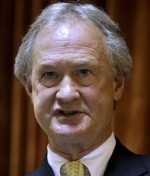 Steven Senne / AP
Steven Senne / AP Lincoln Chafee
Who is he? The son of beloved Rhode Island politician John Chafee, Linc took his late father’s seat in the U.S. Senate, serving as a Republican. He was governor, first as an independent and then as a Democrat.
Is he running? Yes—he announced his run at George Mason University on June 3.
Who wants him to run? Beyond metric-system boosters? No one knows! Even in Rhode Island, Chafee doesn’t have much support—he opted not to seek reelection as governor in 2014, in part because his approval rating had reached a dismal 26 percent.
Can he win the nomination? No. Chafee seems to be positioning himself as an economic populist and says Clinton's 2002 vote for the Iraq war should disqualify her (he was the only Republican senator to vote against it). In other words: He's Jim Webb with a less impressive resume, a less compelling bio (he's the son of longtime Senator John Chafee), and less of a political base. He gives himself even odds, though.
Does his website have a good 404 page? No.
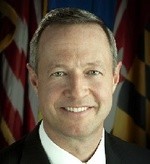 Wikimedia
Wikimedia Martin O'Malley
Who is he? He’s a former governor of Maryland and mayor of Baltimore.
Is he running? Yes. He announced his campaign on May 30.
Who wants him to run? Not clear. He has some of the leftism of Bernie Sanders or Elizabeth Warren, but without the same grassroots excitement.
Can he win the nomination? Probably not. At the moment, O’Malley seems caught between Sanders, who has grasped the progressive mantle, and Clinton, who dominates the Democratic race overall. As with Sanders, though, it’s hard to see where O'Malley would get an opening unless Clinton’s campaign fell apart. The conventional wisdom since protests over the death of Freddie Gray is that protests in Baltimore undermine the case for his candidacy and make it harder for him to run, but he’s embraced the protests as a motivation for his run.
What else do we know? Have you heard that he plays in a Celtic rock band? You have? Oh.
Does his website have a good 404 page? No.
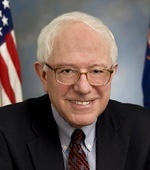 Wikimedia
Wikimedia Bernie Sanders
Who is he? A self-professed socialist, Sanders represented Vermont in the U.S. House from 1991 to 2007, when he won a seat in the Senate.
Is he running? Yes. He announced April 30.
Who wants him to run? Far-left Democrats; socialists; Brooklyn-accent aficionados.
Can he win the nomination? It remains extremely difficult to see him winning the nomination, on the basis that primary voters tend to gravitate to “electable” general-election candidates alone. But Sanders has improbably become a huge force in the Democratic Party, making questions about inequality and economics central to the campaign and tugging Hillary Clinton to the left.
Does his website have a good 404 page? Yes, and it is quintessentially Sanders.
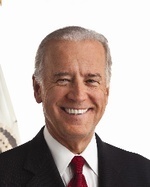 Wikimedia
Wikimedia Joe Biden
Who is he? Biden, a longtime Delaware senator, is vice president and the foremost American advocate for aviator sunglasses and passenger rail.
Is he running? He's made no serious steps toward a run, but whispers have grown since the death of his son Beau Biden in May. The Biden family hadn’t publicly noted that Beau Biden was ill, but his father’s time seems to have been absorbed with caring for him.
Who wants him to run? The Wall Street Journal reports that both Beau Biden and his brother Hunter encouraged their father to run. The group Draft Biden (slogan: “I’m Ridin’ With Biden”) continues to do its best. But so far, the vice president has made few steps that would suggest a real campaign.
Can he win the nomination? If Clinton didn't run, it would throw the Democratic field into disarray. But probably not. At 72, Biden would also be an unusually elderly candidate.
When will he announce? It seems likely that he won't.
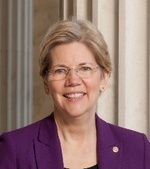 Wikimedia
Wikimedia Elizabeth Warren
Who is she? Warren has taken an improbable path from Oklahoma, to Harvard Law School, to progressive heartthrob, to Massachusetts senator.
Is she running? No. Seriously, no.
Who wants her to run? Progressive Democrats; economic populists, disaffected Obamans, disaffected Bushites.
Can she win the nomination? No, because she's not running.









Why Mullah Omar’s Death Could Be a Nightmare for Afghanistan

Reports on Wednesday that reclusive Taliban leader Mullah Omar had died will be rightly hailed by some as the demise of an American nemesis. But the death of the one-eyed Afghan commander may also scuttle the most promising peace talks in Afghanistan in a decade.
Omar’s direct role in day-to-day Taliban operations had been declining for years, according to Western diplomats in Afghanistan. Even if he is alive, the former leader of Afghanistan is believed to be severely ill.
But the myth that surrounds Omar is a key element in determining whether peace talks can succeed. With the Islamic State and other jihadist groups vying for the loyalty of young Taliban fighters, it is unclear whether any leader except Omar can hold the movement together and then get its members to accept a peace settlement.
Related Story
“The nightmare is if nobody respected the leadership anymore in the Taliban,” said Graeme Smith, a senior analyst at the International Crisis Group who is based in Kabul, “because then you have no one to talk to.”
After decades of using Afghanistan as a battleground for proxy war, the major powers that exacerbated the country’s internal divisions are finally on the same page. Two weeks ago, as Chinese and U.S. diplomats stood by, Pakistani officials convened the first direct peace talks between senior Afghan and Taliban officials in a decade. A second round of negotiations is scheduled on Friday.
But the emergence of actual negotiations has placed enormous strain on the Taliban and widened a dangerous rift inside the group. In the past few weeks, two different militant groups once allied with the Taliban have issued statements declaring Omar is dead. Their goal was to call into question the authority of his deputy, Mullah Akhtar Muhammad Mansoor, to lead the group. Omar’s 26-year-old son, Yaqoob, and other hardliners oppose the peace talks, according to a recent story by a veteran Pakistani journalist with close ties to the Taliban. The hardliners opposed Mansoor’s decision to send a delegation to direct peace talks on July 7. Mansoor later issued a statement purported to be from Omar that supported the talks. On Thursday, one Taliban spokesman said the group would no longer participate in the negotiations.
The worrying trend is that this dispute reflects deep tribal divisions within the Taliban that could divide the entire movement. Ideological rifts exist as well. Some hardline factions that have declared allegiance to the Islamic State now often engage in gun battles with traditional Taliban groups.
At the same time, the Obama administration’s withdrawal of the vast majority of U.S. troops from Afghanistan has bolstered the efforts of the Taliban hardliners. The insurgents have made sweeping military gains in the country’s north. Afghan government forces are experiencing a 50-percent increase in casualty rates. Roughly 4,100 Afghan soldiers and police were killed and 7,800 wounded in the first six months of this year, according to news reports.
News of Mullah Omar’s death could not have come at a worse time. His brutality was medieval. But he served as the unifying force of the Taliban.Afghanistan’s new president, Ashraf Ghani, has also come under withering criticism from fellow Afghans for a bold diplomatic gamble. Since taking office, the U.S.-educated anthropologist has openly wooed Chinese and Pakistani officials. He made many concessions in hopes they could help bring the Taliban to the negotiating table. In a piece of rare good news from Afghanistan, Ghani’s gambit has paid off. After sheltering Taliban leaders for the past 14 years, Pakistani military officials are putting intense pressure on the Taliban to attend the talks.
Pressure from China, the Pakistani military’s most important ally, appears to have played a central role, according to Barnett Rubin, a former senior State Department official and expert on Afghanistan. Chinese officials increasingly see militancy in the region as a threat to Beijing’s plans for economic growth and political stability in western China, which borders both Afghanistan and Pakistan.
As Rubin wrote in The New Yorker on Wednesday:
An increase in terrorist attacks connected to a separatist movement in the Xinjiang Autonomous region, some of whose fighters received training in Pakistan and Afghanistan, had led China to regard the stability of Afghanistan as crucial to its internal security as well as its economic future.
As odd as it may seem to some Americans, reports of Omar’s death could not come at a worse time. Omar’s brutality was medieval. But for two decades, he has served as the unifying force of the Taliban.
The talks on Friday and their progress in the weeks ahead could help determine whether Afghanistan follows the route of Syria, Yemen, and Libya toward state collapse. As the rise of the Islamic State has shown, an even more radical group could emerge out of the disintegration of the Taliban.
A rare moment of consensus among international powers and their longtime Afghan proxies exist. But it may be too late to halt the centrifugal forces unleashed in Afghanistan by both internal and external actors over the past 40 years.
This post appears courtesy of Reuters.









What Mission: Impossible Understands About Tom Cruise

The theater promos that ran for weeks hyping Mission: Impossible—Rogue Nation wanted to make one thing very clear. That shot of Ethan Hunt (Tom Cruise) hanging off a plane as it takes off? That’s really Tom Cruise hanging off a plane (he did it eight times). Amid the hype, you get the feeling that the promo isn’t trying to sell Cruise’s bravery, but is instead trying to connect with something the audience might already be thinking: This guy is a maniac—but isn’t that what we like about him?
Related Story
The Unexpected Pleasures of Edge of Tomorrow
Since the height of his fame in the 1990s, Cruise’s stardom has weathered strange incidents and Hollywood gossip connected to his love life and his advocacy of Scientology. Even though he stars in a new blockbuster just about every year, his couch-jumping, uncomfortable morning-show interviews, maniacal laughter, and talk of “suppressive persons” have hurt his credibility. Outside of the Mission: Impossible franchise, Cruise’s last bona-fide smash hit was 2005’s War of the Worlds. Subsequently, he’s embraced projects both interesting (World War II drama Valkyrie, sci-fi original Edge of Tomorrow) and middle-of-the-road (action dramas like Knight & Day and Jack Reacher), and everything has underperformed at the box office.
This all came before the release of Alex Gibney’s documentary Going Clear, which leveled more claims against Scientology and was predicted to further hurt Cruise’s career. And yet almost 20 years since the original’s release, the Mission: Impossible movies have remained immune from the Cruise pushback—partly by harkening back to an age when the actor was the undisputed king of Hollywood, and partly by embracing the strange intensity he’s known for today.
The first Mission: Impossible (1996), directed by Brian De Palma, set the tone for the franchise as a quasi-James Bond, but with even more gadgets. It had globetrotting, several memorable action scenes, and a plot so ridiculously convoluted that the details no longer mattered by the time it got to the conclusion (which involved a helicopter tethered to a high-speed train going through the Channel Tunnel). Each subsequent film was helmed by a new director who added his own personal brand: John Woo’s liberal use of slow-motion cinematography, J.J. Abrams’s labyrinthine blend of flashbacks and double-crossing, Brad Bird’s light touch with action that turned climbing the Burj Khalifa into a high-wire comedy act. Through it all, Cruise’s Ethan Hunt has remained a total cipher: There’s never any time for character development, and after an off-screen marriage to a character played by Michelle Monaghan for M: I-3, Hunt doesn’t even get much romantic frisson with his female leads.
Instead, he gets a new package of death-defying stunts to perform—being blasted against a car by a rocket launcher, perhaps, or hanging off a sheer cliff with no wires to support him. When Cruise climbs the Burj Khalifa for Ghost Protocol, the result is visually stupendous, but more a feat of athleticism than acting. Cruise has given genuinely strong performances in other recent films, particularly his transformation from publicist slug to military hero in Edge of Tomorrow, but his work as Ethan Hunt often feels more like an act of physical sacrifice, a frantic effort to keep in the audience’s good graces. Hunt does little outside of action sequences, mostly barking exposition and staring intently while his colorful supporting cast keeps a comedic running commentary around him.
Throughout the Mission: Impossible series, Cruise’s Ethan Hunt has remained a total cipher.Of Mission: Impossible’s original supporting players, only Ving Rhames (as the surveillance expert Luther Stickell) remains by Hunt’s side in the fifth movie, but Simon Pegg (as the tech wiz Benji) and Jeremy Renner (as the stuffy government exec Brandt) have been added into the rotation to serve as incredulous sounding boards. Here’s how a scene in the Mission: Impossible series usually goes: “We need to do [an utterly insane, ludicrous thing],” Ethan tells his team. “But that’s utterly insane and ludicrous!” someone replies. Ethan then glares until everyone agrees to do it, and then it’s onto the next set-piece. This formula is brilliantly simple, doesn’t require much back-and-forth, and lets Cruise do what he does best: tear through each film like a bullet before viewers have time to question how demented his character seems to be.
It helps that the Tom Cruise of Mission: Impossible is the quintessential Tom Cruise character, running fanatically toward the next crisis, as he did in hits like The Firm and Minority Report. In earlier films, Ethan was given personal issues to work through, such as his aforementioned marriage, but in Ghost Protocol and Rogue Nation those arcs get pushed off onto the supporting cast, so that Hunt can focus on the impossible mission at hand. Others can worry about fragile international relations or dead spouses; there’s a nuke aimed at San Francisco that Hunt has to stop, even if it means literally throwing his body in its way.
Despite the revelations of Going Clear, which accused Cruise’s religion of forcing its participants into indentured servitude (and blackmailing the stars who endorse it with secrets about their personal lives), he won’t be going away as a star anytime soon. Even though a film like Edge of Tomorrow landed softly at the U.S. box office (grossing $100 million on a $178 million budget), it did well enough internationally ($369 million worldwide) to avoid being labeled a total bomb. Though he can continue to coast on worldwide name recognition, it helps even more that Cruise will always have Ethan Hunt to lean back on.
It didn’t always seem that way—when Ghost Protocol was released, Renner’s casting seemed to indicate that Paramount was clearing the way for a baton pass to a younger star, as the aging Cruise (now 53 years old) wouldn’t be able to subject his body to such rigors forever. But Renner, who’s less of a star and more of a great character actor, remains second fiddle to Hunt, whose future seems secure as the films continue to rake in profits. Rogue Nation’s box-office take will be the ultimate decider, of course, but Cruise is unlikely to drop the one brand that’s remained constant through his many public embarrassments. Ethan Hunt doesn’t have to be recognizably human or relatable. He’s a ball of lightning, or as Alec Baldwin’s CIA Director character in Rogue Nation describes him, “the literal manifestation of destiny.” Like Tom Cruise, he’s a very alien force of nature, and somehow, that recognition is easier for audiences to embrace.









Atlantic Monthly Contributors's Blog
- Atlantic Monthly Contributors's profile
- 1 follower



